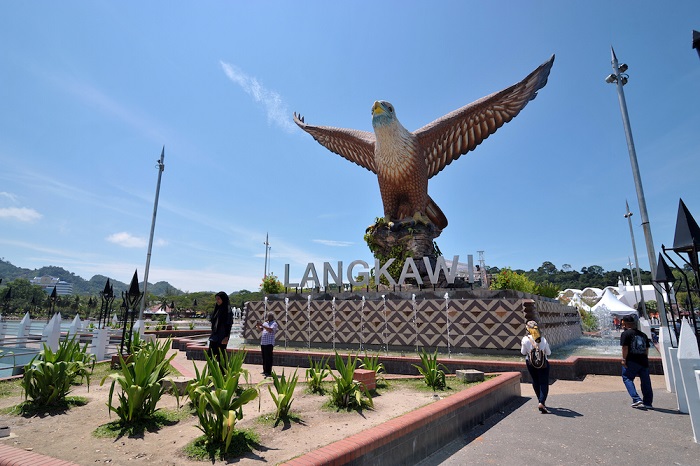TRAINING is not a popular or common practice in industries or businesses where the bosses themselves have not received the right training to appreciate its benefits or were disappointed with employees that did not perform better after attending short training courses.
This is especially so in the travel trade as most training courses are nothing more than briefing seminars with trainers engaged in syiok sendiri exercises by dishing out impressive facts and figures just to impress the audience but did little to raise performance or increase productivity.
Training courses ought to be different from academic programmes, which are course-based. Training for working adults or industry personnel must be learner centred. To develop their business, attendees must learn and comprehend the fundamentals and describe them correctly.
Sadly, most travel industry personnel have only a superficial knowledge of their business as they could not define correctly or meaningfully basic terms such as tourism, tourists, visitors, tour leaders, tourist guides, travel agencies, inbound tours, domestic tours and domestic tourism.
Even academia could be ignorant. I was once approached by top academics from a faculty of a local public university to assist in organising an “international tourist guide course” as only licensed tourism training institutes could conduct tourist guide courses and examinations.
I knew instantly they had misconstrued tour leaders as “international tourist guides” and they had needlessly driven 442km to seek collaboration because anyone could conduct a tour leader course and there is no such licence issued anywhere, unlike international driving permits.
Hospitality graduates find it hard to secure jobs
Almost all institutes of higher learning offer tourism programmes and students are easily lured by high-sounding names such as “Hospitality and Tourism Management”. But upon graduation, most fresh graduates could not even secure junior positions, much less in management.
This is because they lack industry-relevant skills and knowledge. Those with poor communication skills and proficiency in the English language would have difficulty interacting with colleagues, customers and suppliers, and are unable to learn fast and well on the job.
What was taught or memorised to obtain a diploma or degree is mostly outdated knowledge, which is just information that could easily be found online. What is more crucial at work is to be able to interpret correctly what is happening and apply what is practical to fix it.
Paper qualifications are the least important in the workplace. It is only performance that counts, and this starts with a positive attitude, such as being proud of the job instead of oneself, being respectful of oneself in order to be respectful of others, and always being kind and showing courtesy.

All these are hallmarks of an educated person but regrettably, they are lacking in many graduates and even academics, most glaringly among shameless politicians. Hence, education will only be effective if attitude, skills and knowledge (ASK) are combined for holistic training.
The best example is customer service programmes. Trainees were usually loaded with tons of information with a long list of dos and don’ts, but most were forgotten immediately after the course. Hence, it is no surprise that there was little or no change after this so-called training.
For training to be effective, participants ought to realise a new dimension in customer service. Contrary to popular belief, customer service is not limited to front liners but starts from the top management and involves everyone in the organisation, plus facilities offered to the public.
It has a direct effect on the company’s sales and profits, and eventually on staff increments and bonuses. When these are realised, everyone in the organisation would be willing to roll up their sleeves to upgrade customer service and offer the best for their customers and the public.
Graduates need industry training workshops
For this to occur, they must be able to identify and plug weaknesses and continue to build and cash in on their strengths while responding to and embracing changes in the market. But nothing will ever happen without taking the first few steps, which could be initiated in a training workshop.
The stars would be aligned when these workshops are conducted by trainers that have achieved notable success in running businesses and are able to articulate the industry’s contexts and proposed concepts needed for the trade to evolve and thrive in the new normal.
But it would be challenging for tourism training institutes to offer such training workshops as their staple had been the standardised tourist guide course with larger ones that include colleges, university colleges and a full-fledged university offering mostly academic programmes.
Over 16 years ago when I was running a tourism school, the two most valuable courses for travel industry personnel then were tourist guide courses and the IATA-UFTAA Foundation Diploma programme that was highly valued by travel agencies specialising in airline ticketing.
IATA diploma no longer relevant
Although the tourist guide licence and the IATA diploma could be obtained within six months of study either full-time or part-time, these qualifications were more valuable than any other diploma or degree for work in the travel trade.
But they were no longer so after airlines stopped paying commissions from 2008 onwards and facilitated passengers to book directly with them, and international travel for leisure tourists came to a halt after COVID-19 struck in early 2020 and was followed by a prolonged pandemic.
Since 1993, the Department of Skills Development or Jabatan Pembangunan Kemahiran (JPK) had developed the National Occupational Skills Standards (NOSS) for many jobs in the travel trade and had revised some of them several times over the years.
In 2018, JPK also published the occupational framework (OF) for the travel industry, and I was credited as the researcher. The OF contains a listing of the multitude of job titles and their roles are defined for clarity.
But courses based on the NOSS are too lengthy for training newcomers to the industry and working conditions which are mostly interactions with colleagues, customers and suppliers could not be simulated in the classroom, unlike learning manual skills such as car mechanics.
It would also be very challenging to get practising travel industry personnel to take a day or two off to attend training. About the only course that many have attended is the Travel and Tours Enhancement Course (TTEC) which was introduced in 2012.
The Tourism Ministry made it compulsory for senior staff of tour operating or travel agency businesses to attend TTEC as the attendance certificate is required for renewal of business licences, which could be granted for one year or maximum of three years if all conditions are met.
Other than TTEC, there is a dearth of suitable training courses for the travel industry. Of late, digital marketing had been the flavour of the day with many hoping to reach more potential customers. But sales will remain poor if they continue to offer similar products that are stale.
The game changer in the travel trade would be offering short but effective training participated by many travel industry personnel. Training workshops could empower many to create new tours and travel services that a large number of locals would want but are not available in the market.
Without innovation, the travel trade will continue to offer much of the same as before the pandemic to foreign tourists. Dynamism is needed to revitalise the industry and the surest way to do that is to introduce new products that are exciting or beneficial to locals and foreigners. – Oct 17, 2022
YS Chan is a master trainer for Mesra Malaysia and Travel and Tours Enhancement Course and an Asean Tourism Master Trainer. He is also a tourism and transport business consultant.
The views expressed are solely of the author and do not necessarily reflect those of Focus Malaysia.
Main photo credit: Malay Mail









